
The sound of trickling water can add a calming and soothing atmosphere to any outdoor space. Whether you're looking to create a peaceful retreat in your backyard or add a touch of elegance to your front yard, a water fountain can be a great addition to your home. But with so many options available, it can be overwhelming to decide which one is the right fit for your space. In this blog, we'll explore the various types of water fountains and the factors to consider when choosing one, so you can make an informed decision and enjoy the beauty and tranquility of your new water fountain for years to come.

Consider your space
Before you start shopping for a water fountain, it's important to take a step back and consider the size and shape of your available space, as well as the overall style and design of your outdoor area. This will help you narrow down your options and choose a water fountain that fits in seamlessly with your existing landscape.
To measure the size of your available space, use a tape measure or pace it off. This will give you a good idea of how much room you have to work with and what size water fountain will fit comfortably. You should also consider the shape of your space and whether a rectangular, square, or circular water fountain would be a better fit.
In addition to size and shape, you should also think about the style and design of your outdoor area. Do you have a formal garden with straight lines and symmetrical plantings, or a more natural and relaxed look? The style of your water fountain should complement the overall style of your landscape, so choose one that fits in with the overall aesthetic.
Consider your budget
Your budget is one of the most important factors to consider when choosing a water fountain for your project. Water fountains come in a variety of sizes and styles, and their cost can range from a few hundred dollars to several thousand dollars. It's important to set a budget for your water fountain before you start shopping to ensure that you're not overspending or choosing something that's out of reach financially.
There are several ways to save money on your water fountain. You can opt for a pre-formed pond, which is a cost-effective option and requires minimal installation. Another option is to purchase a smaller fountain or waterfall, which can be less expensive than a larger water fountain. You can also choose to install the water fountain yourself, which can save you money on labor costs.
It's also important to consider the cost of maintenance when choosing a water fountain. Some water fountains require more maintenance than others, and this cost should be taken into consideration when setting your budget. A low-maintenance option, such as a pre-formed pond or a small fountain, might be a more cost-effective option in the long run.
By taking your budget into consideration when choosing a water fountain, you can ensure that you select a water fountain that fits both your style and your budget. And with the right planning, you can enjoy the beauty and tranquility of your water fountain for years to come.
Consider your purpose
When choosing the right water fountain for your project, it's important to consider the purpose or functionality of the water fountain. This will help you determine what type of water fountain will best meet your needs and enhance the beauty of your outdoor space.
If you're looking to create a relaxing outdoor space, a water fountain that provides soothing sounds, such as a fountain or a pond, may be the best choice. These types of water fountains can help create a peaceful and tranquil environment, perfect for unwinding after a long day or for enjoying with friends and family.
If you're looking for a water fountain that can be used for entertainment, a swimming pool or hot tub may be the right choice. These types of water fountains provide opportunities for exercise, recreation, and entertainment, and can be used by people of all ages.
If you're looking for a water fountain that serves as a focal point for your outdoor space, a large fountain or a pond with a waterfall may be the best choice. These types of water fountains can add visual interest to your outdoor space and can be a beautiful backdrop for outdoor gatherings and events.
When choosing the right water fountain for your project, it's important to consider the purpose or functionality of the water fountain, as well as your own personal preferences and needs. This will help you choose a water fountain that enhances the beauty of your outdoor space and meets your needs for relaxation, entertainment, or as a focal point.
Decide on the type of water fountain
When it comes to water fountains, there are many different options to choose from, each with its own set of pros and cons. Some of the most popular types of water fountains include fountains, ponds, waterfalls, streams, and birdbaths. Here is a brief overview of each option:
- Fountains: Fountains are a classic choice for water fountains and come in a wide range of sizes and styles. They can be freestanding or wall-mounted and can be powered by electricity or solar panels. Fountains are easy to install and maintain, but they do require a consistent water supply and may not be suitable for areas with extreme temperatures.
- Ponds: Ponds are a more involved water fountain that can add a natural and tranquil atmosphere to your outdoor space. They can be home to a variety of plants and animals, such as fish, frogs, and water lilies. Ponds require more maintenance than fountains, as they need to be regularly cleaned and have a filter system in place to keep the water healthy. They also require more space and can be more expensive to install.
- Waterfalls: Waterfalls add the sound of rushing water to your landscape and can be a beautiful and dramatic addition to your outdoor space. They can be built into a pond or stand alone as a freestanding feature. Waterfalls require a more advanced plumbing system and can be more expensive and time-consuming to install and maintain.
- Streams: Streams are a more natural-looking water fountain that can add movement and sound to your landscape. They can be built into a pond or stand alone and can be powered by a pump. Streams require a consistent water supply and can be more expensive and time-consuming to install and maintain.
- Birdbaths: Birdbaths are a simple and affordable water fountain that can attract a variety of birds to your outdoor space. They are easy to install and maintain, but may not provide the same level of visual interest as a larger water fountain.
When deciding on the type of water fountain to install, consider your available space, budget, and the level of maintenance you are willing to take on. Each type of water fountain has its own set of pros and cons, so weigh the options carefully to choose the one that is right for you.
Choose the Right Material
The material you choose for your water fountain can have a big impact on its appearance and longevity. When choosing the right material, there are several factors to consider, including cost, durability, and style.
One of the most popular materials for water fountains is stone. Stone, such as granite or marble, is a durable and long-lasting option that can add a natural, organic look to your water fountain. Stone water fountains can be expensive, but they are well worth the investment if you're looking for a water fountain that will last for many years to come.
Another popular material is concrete. Concrete is a versatile material that can be molded into a variety of shapes and sizes, making it a good option for custom water fountains. It's also relatively low-cost, making it a popular choice for those on a budget. However, concrete can be prone to cracking over time and may require more maintenance than other materials.
Glass is another material that can be used for water fountains. Glass water fountains can create a modern, sleek look and can be very effective when combined with lighting. Glass is a durable material, but it can be expensive, and it may require special care when cleaning to avoid scratches or cracks.
Finally, metal, such as copper or stainless steel, can be used to create stunning water fountains. Metal water fountains are durable, low-maintenance, and can add a touch of sophistication to your outdoor space. However, metal can be expensive, and it may require special care to prevent rust or corrosion over time.
When choosing the right material for your water fountain, it's important to consider the durability and maintenance requirements of the material. With careful consideration, you can select a material that meets your needs and enhances the beauty of your outdoor space.
Consider your style
When choosing the right water fountain for your project, it's important to consider the style of your outdoor space. A water fountain should complement the existing design and aesthetic of your outdoor space, so it's important to choose one that fits with your style.
For example, if you have a traditional, classic outdoor space, a traditional fountain or pond may be the best choice. If you have a modern, contemporary outdoor space, a sleek and modern water fountain, such as a reflecting pool or a geometric fountain, may be a better fit.
There are many styles of water fountains to choose from, so it's important to take the time to explore your options and find one that fits with the style of your outdoor space. Some popular styles of water fountains include:
- Traditional: Traditional water fountains, such as fountains and ponds, are classic and timeless. They are a good choice for outdoor spaces with a traditional or classic design.
- Modern: Modern water fountains, such as reflecting pools and geometric fountains, are sleek and contemporary. They are a good choice for outdoor spaces with a modern or contemporary design.
- Natural: Natural water fountains, such as streams and rock gardens, are designed to mimic the natural beauty of water in nature. They are a good choice for outdoor spaces with a natural or organic design.
- Asian-inspired: Asian-inspired water fountains, such as koi ponds and Zen gardens, are influenced by the peaceful and tranquil design of traditional Asian gardens. They are a good choice for outdoor spaces with an Asian-inspired design.
When choosing the right water fountain for your project, it's important to consider the style of your outdoor space and choose a water fountain that fits with your aesthetic. This will ensure that your water fountain enhances the beauty of your outdoor space and adds to the overall design of your space.
Consider safety
When choosing the right water fountain for your project, it's important to consider the safety of children and pets. Water fountains can be a hazard if they are not designed with safety in mind, so it's important to choose a water fountain that is safe for everyone in your home.
To ensure the safety of your children and pets, you should choose a water fountain that is designed with safety features, such as non-slip surfaces, secure covers, and fencing or barriers to prevent accidental access to the water.
Additionally, it's important to choose a water fountain that is easy to maintain and clean. Dirty or stagnant water can harbor bacteria and other harmful substances, so it's important to choose a water fountain that is easy to clean and maintain to ensure the health and safety of your family.
Finally, it's important to consider the location of your water fountain. You should choose a location that is easily accessible for maintenance and cleaning, but also away from areas where children and pets play.
When choosing the right water fountain for your project, it's important to consider the safety of children and pets. By choosing a water fountain that is designed with safety in mind, you can ensure that your water fountain is safe and enjoyable for everyone in your home.
Consider climate
The climate in your area can have a significant impact on the performance and longevity of your water fountain. Some water fountains may not be suitable for certain climates, so it's important to choose a water fountain that is appropriate for your area.
If you live in an area with extreme temperatures, you may want to choose a water fountain that is designed to withstand harsh weather conditions. For example, if you live in an area with harsh winters, you may want to choose a water fountain that is frost-resistant or can be drained and covered during the winter months.
If you live in an area with high levels of rainfall, you may want to choose a water fountain that is designed to manage excess water. For example, you may want to choose a water fountain with an overflow system or a pump to manage excess water.
If you live in an area with high humidity, you may want to choose a water fountain that is designed to resist rust and corrosion. For example, you may want to choose a water fountain made from stainless steel or other materials that are resistant to rust and corrosion.
When choosing the right water fountain for your project, it's important to consider the climate in your area. By choosing a water fountain that is appropriate for your area, you can ensure that your water fountain performs well and lasts for many years.
Think about maintenance
Maintenance is an important factor to consider when choosing a water fountain, as it will determine how much time and effort you need to put into keeping it running smoothly. Some water fountains require more maintenance than others, so it's important to think about how much time and resources you are willing to commit to maintaining it.
You should also determine if you need to hire professionals for installation and maintenance. Some water fountains, such as ponds and streams, may require more advanced plumbing and electrical work that is best left to the professionals. If you do hire professionals, be sure to get multiple quotes and do your research to find a reputable company.
By considering the maintenance requirements of a water fountain, you can choose one that fits your time and resource constraints and will be a long-lasting and enjoyable addition to your outdoor space.
Consider the ambiance
A water fountain can not only add a calming and soothing atmosphere to your outdoor space, but it can also enhance the overall look and feel of your landscape. When choosing a water fountain, think about the ambiance you want to create and how it will fit in with the overall design of your outdoor space.
One way to enhance the ambiance of your water fountain is to add lighting. Lighting can add a dramatic effect to your water fountain and make it a focal point of your landscape at night. There are many different types of lighting options to choose from, such as underwater lights, spotlights, and floodlights, so you can choose the one that fits your style and needs.
Plants can also add to the ambiance of your water fountain and create a cohesive look. Water-loving plants, such as water lilies and lotus, can be planted in a pond, while ferns and other moisture-loving plants can be placed around a fountain or waterfall. Adding plants can bring a touch of nature to your water fountain and create an inviting atmosphere.
By considering the overall ambiance you want to create with your water fountain and adding lighting and plants, you can create a cohesive and inviting outdoor space that you'll enjoy for years to come.
Get Professional Assistance
While it's possible to install a water fountain yourself, it's often best to get professional assistance when planning and installing a water fountain for your project. A professional contractor can help you choose the right water fountain for your outdoor space and provide guidance on installation, maintenance, and any necessary electrical and plumbing work.
If you're installing a water fountain that requires electrical work, make sure that you have access to a qualified electrician. An electrician can help you with the installation and make sure that your water fountain is connected to the electrical supply safely and correctly.
If you're installing a water fountain that requires plumbing work, make sure that you have access to a qualified plumber. A plumber can help you with the installation and make sure that your water fountain is connected to the water supply safely and correctly.
Working with a professional contractor can also help ensure that your water fountain is installed properly, so that it operates efficiently and safely. A professional contractor can also provide helpful advice on choosing the right materials, pumps, and filters to ensure that your water fountain lasts for many years to come.
In addition, a professional contractor can help you determine the best placement for your water fountain and ensure that it's installed in a way that enhances the beauty of your outdoor space. This can include choosing the right location for the water fountain, such as near a seating area or in a shaded spot, and choosing the right type of lighting to highlight the beauty of the water fountain at night.
Finally, a professional contractor can help you with any necessary permits and inspections. In some cases, you may need to obtain permits from local authorities in order to install a water fountain. A professional contractor can help you navigate the permitting process and ensure that your water fountain complies with all local regulations and building codes.
In conclusion, getting professional assistance when planning and installing a water fountain can be a smart investment that helps ensure that your water fountain is installed properly, operates efficiently, and lasts for many years to come. By working with a professional contractor, you can enjoy the beauty and tranquility of your water fountain with peace of mind.
Final Thoughts
In conclusion, a water fountain can add a calming and soothing atmosphere to any outdoor space and enhance the beauty and functionality of your landscape. When choosing a water fountain, it's important to consider your available space, budget, and the level of maintenance you are willing to take on. There are many different types of water fountains to choose from, each with its own set of pros and cons, so weigh your options carefully to choose the one that is right for you.
We encourage readers to consider their own outdoor space and needs when choosing a water fountain and to think about maintenance and ambiance in order to make the most of their new water fountain. With a little bit of planning and care, your water fountain can be a long-lasting and enjoyable addition to your home.
Related Articles
Comprehensive Guide to Solar Powered Water Fountains
Concrete Water Fountains: A Comprehensive Guide
Installing a Water Fountain: A Step-by-Step Guide
Guide on Tiered Water Fountains
Best Material for a Water Fountain
How to Choose the Right Pump for Your Water Feature


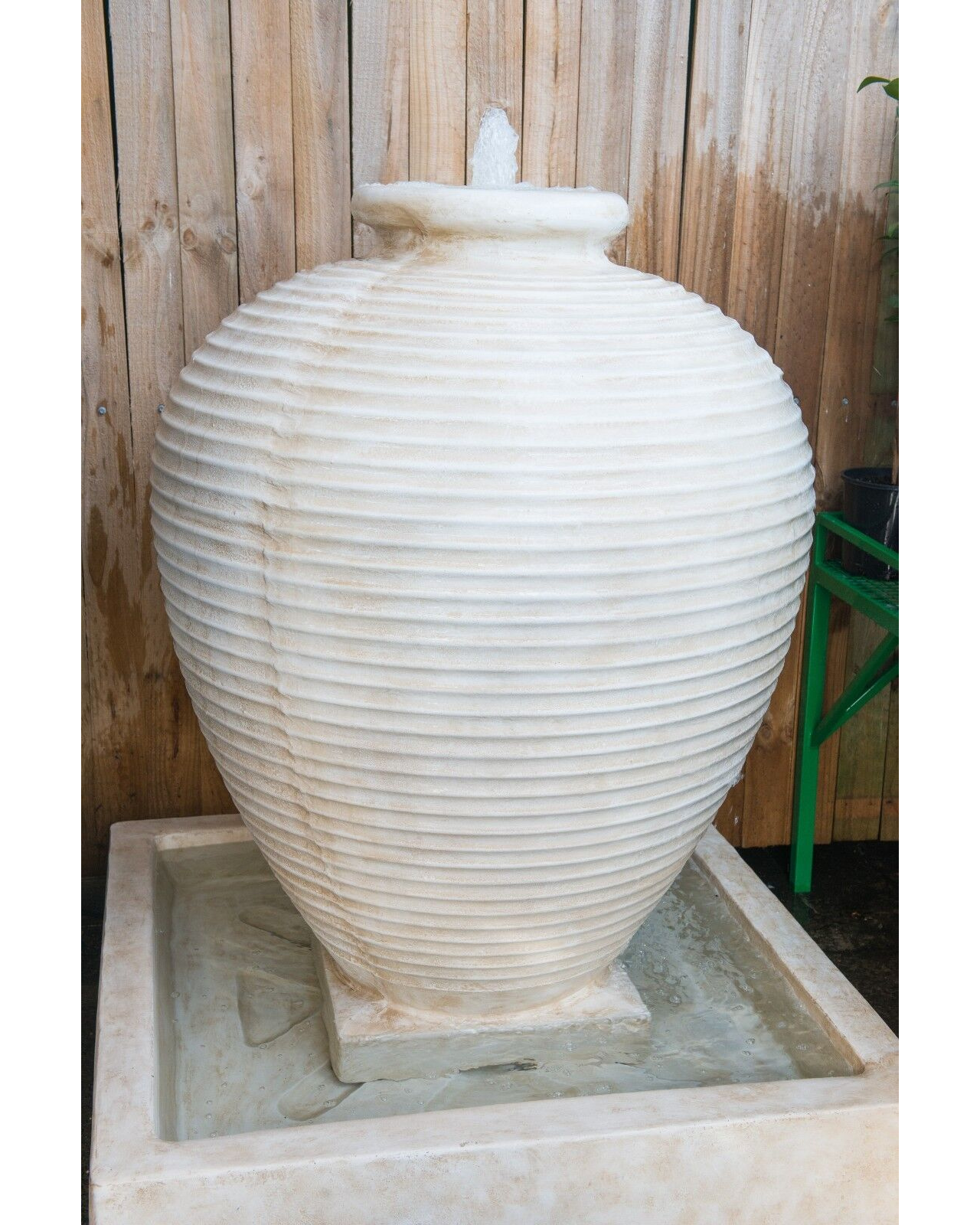

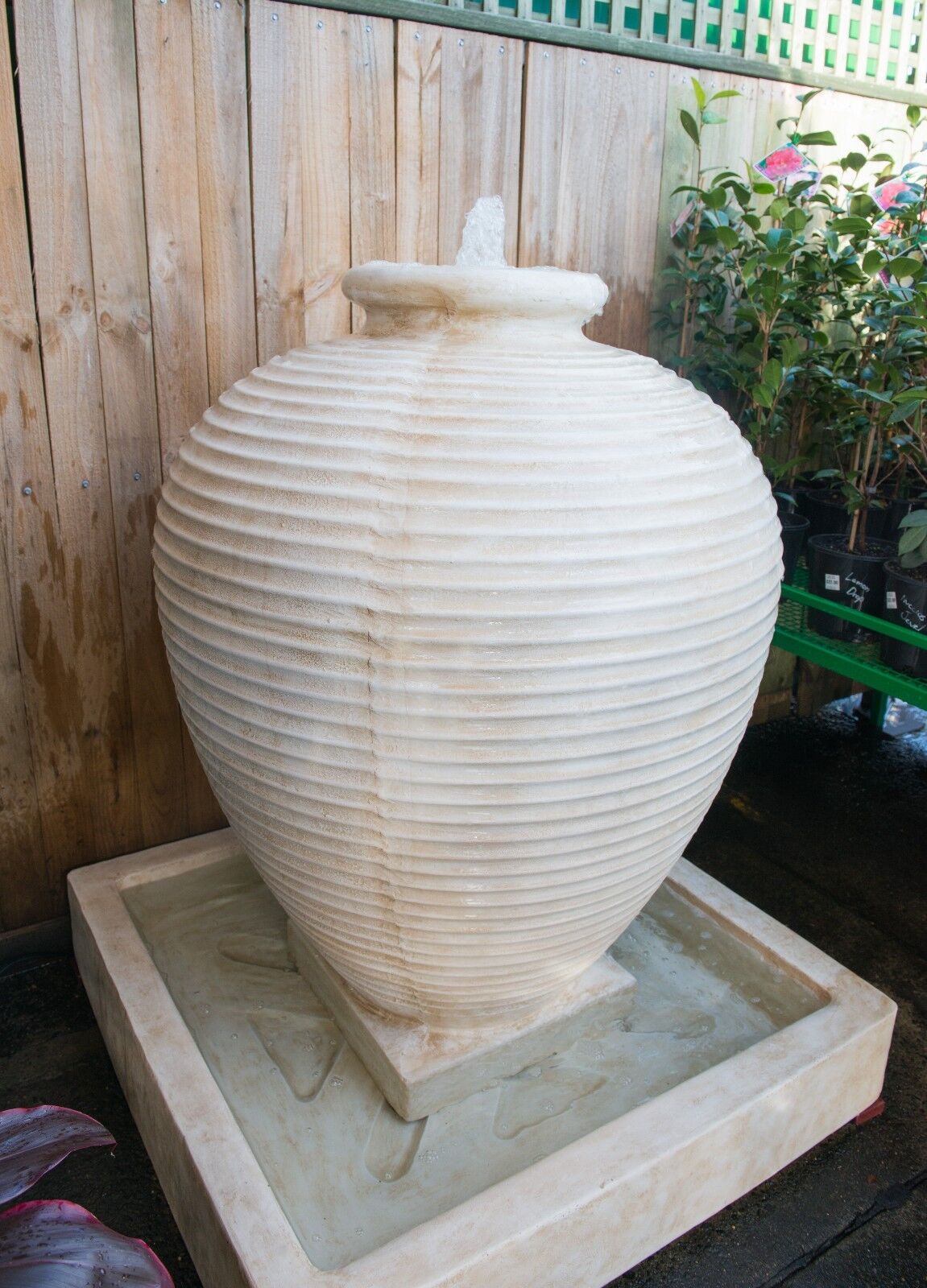
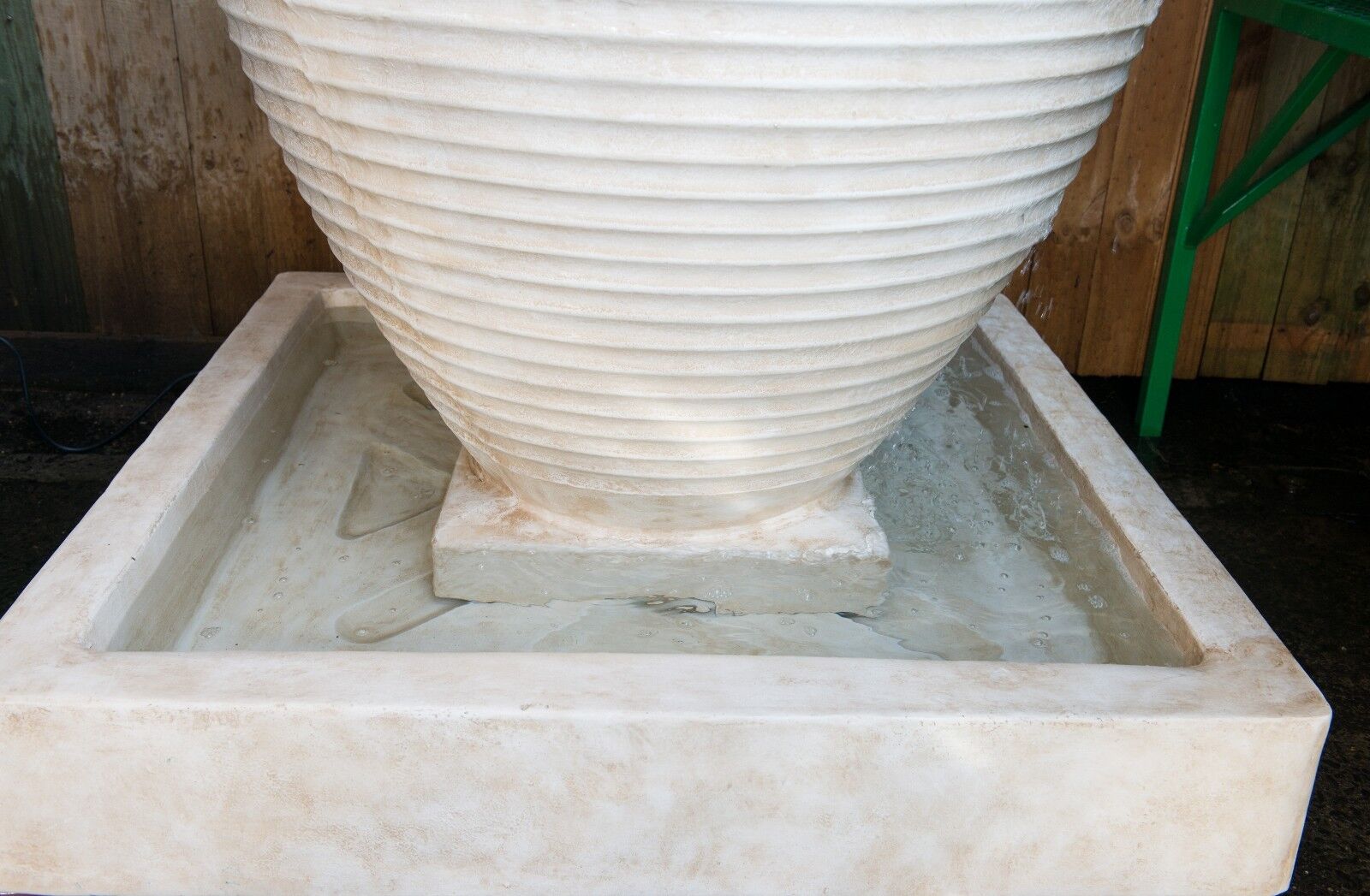
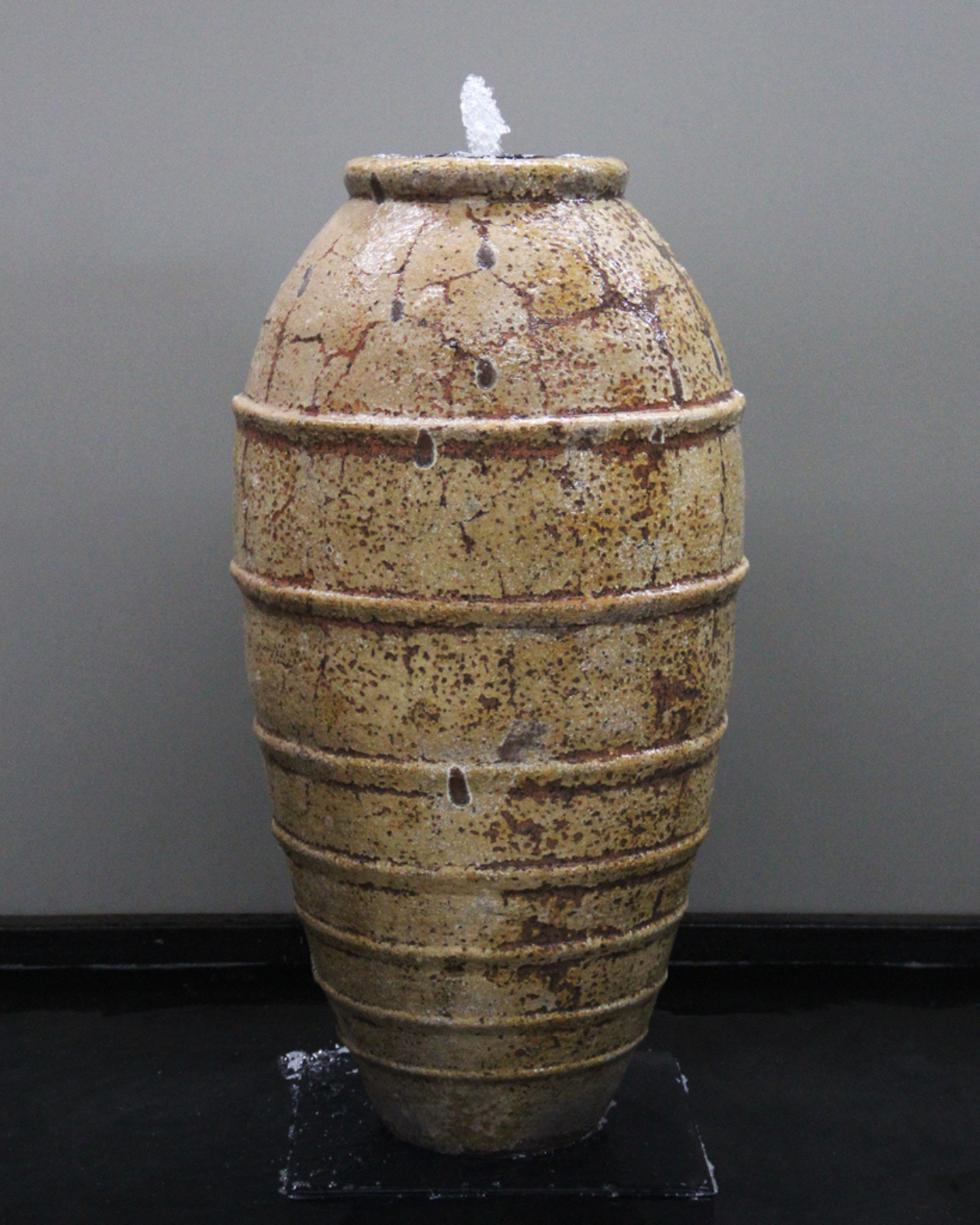

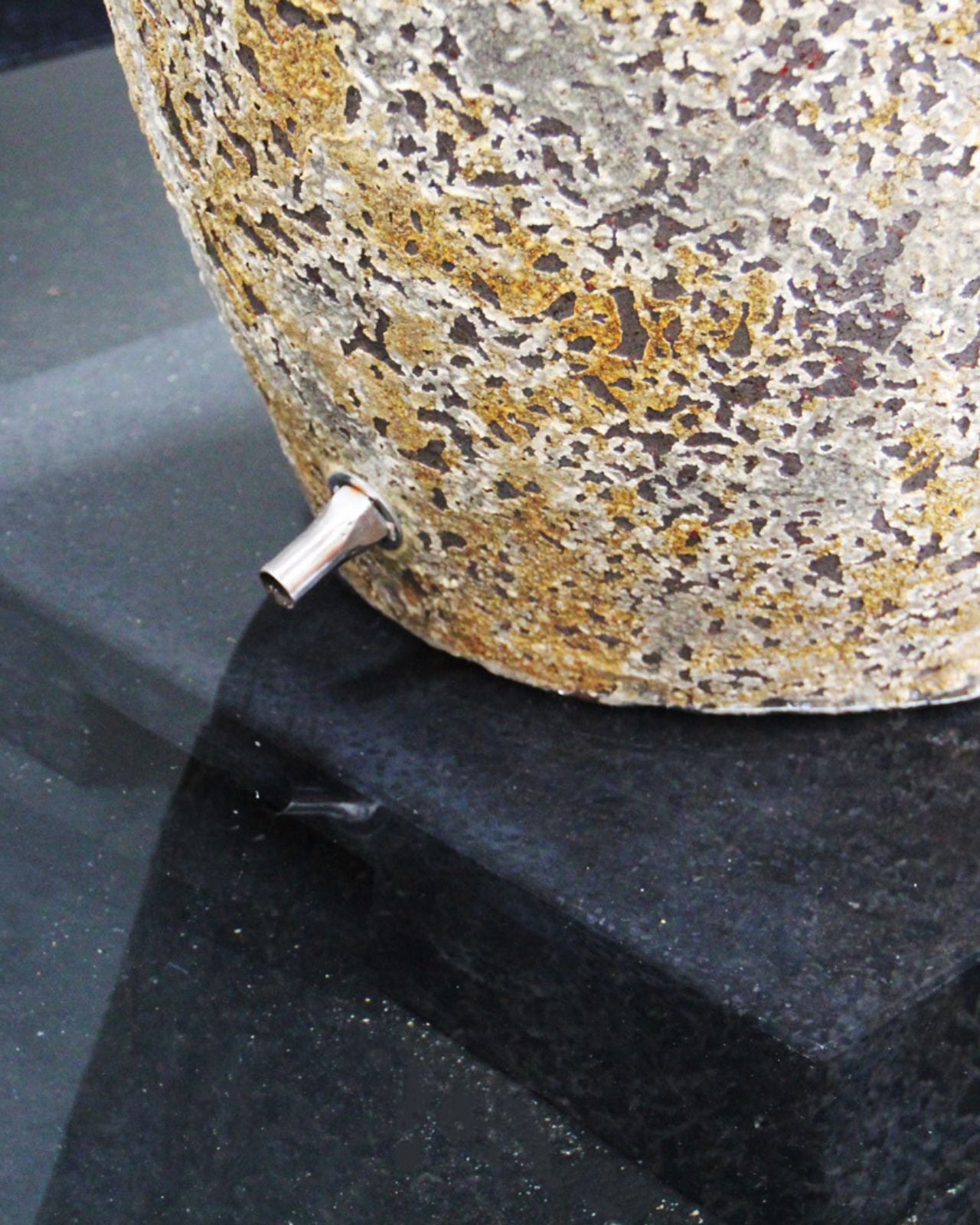
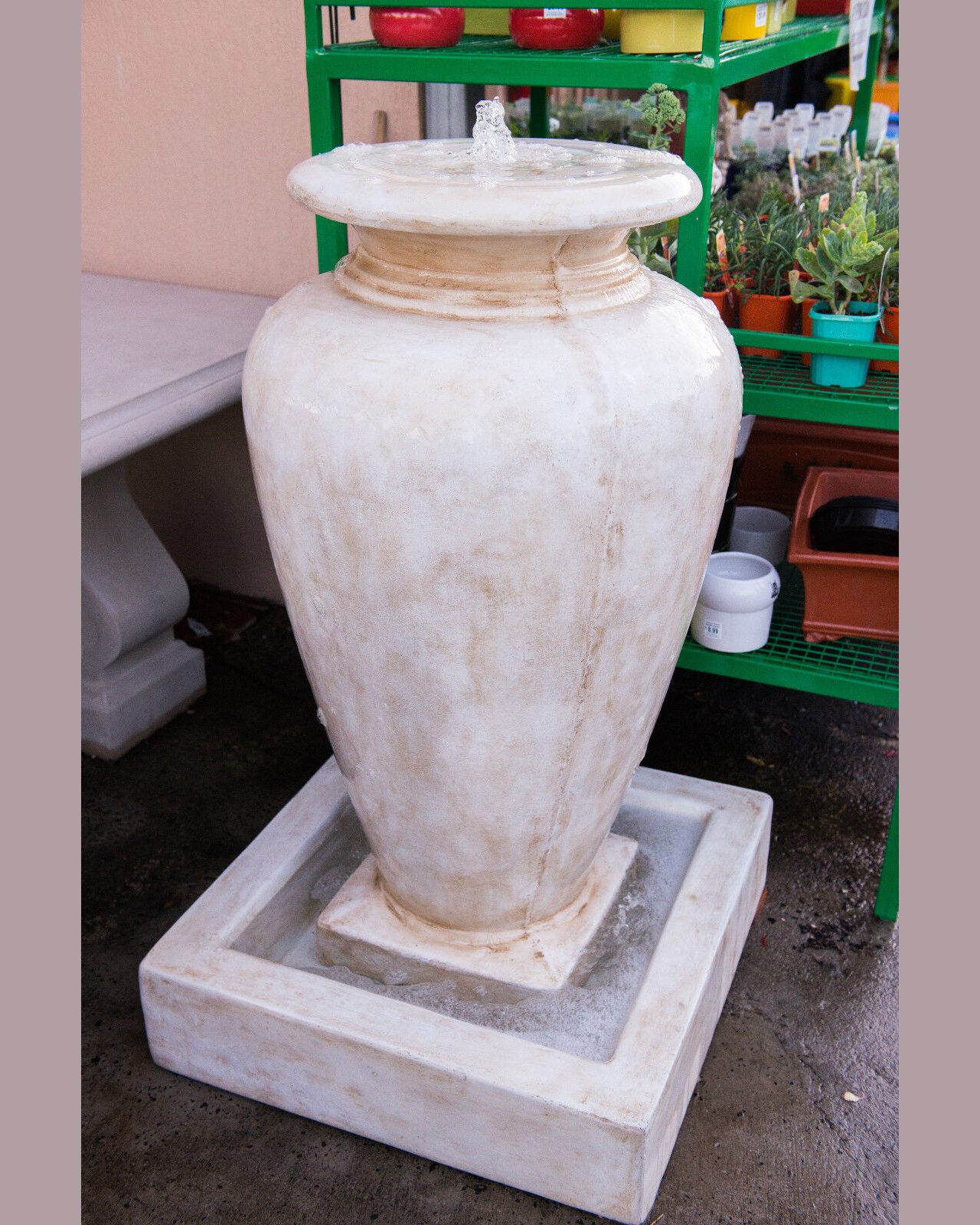

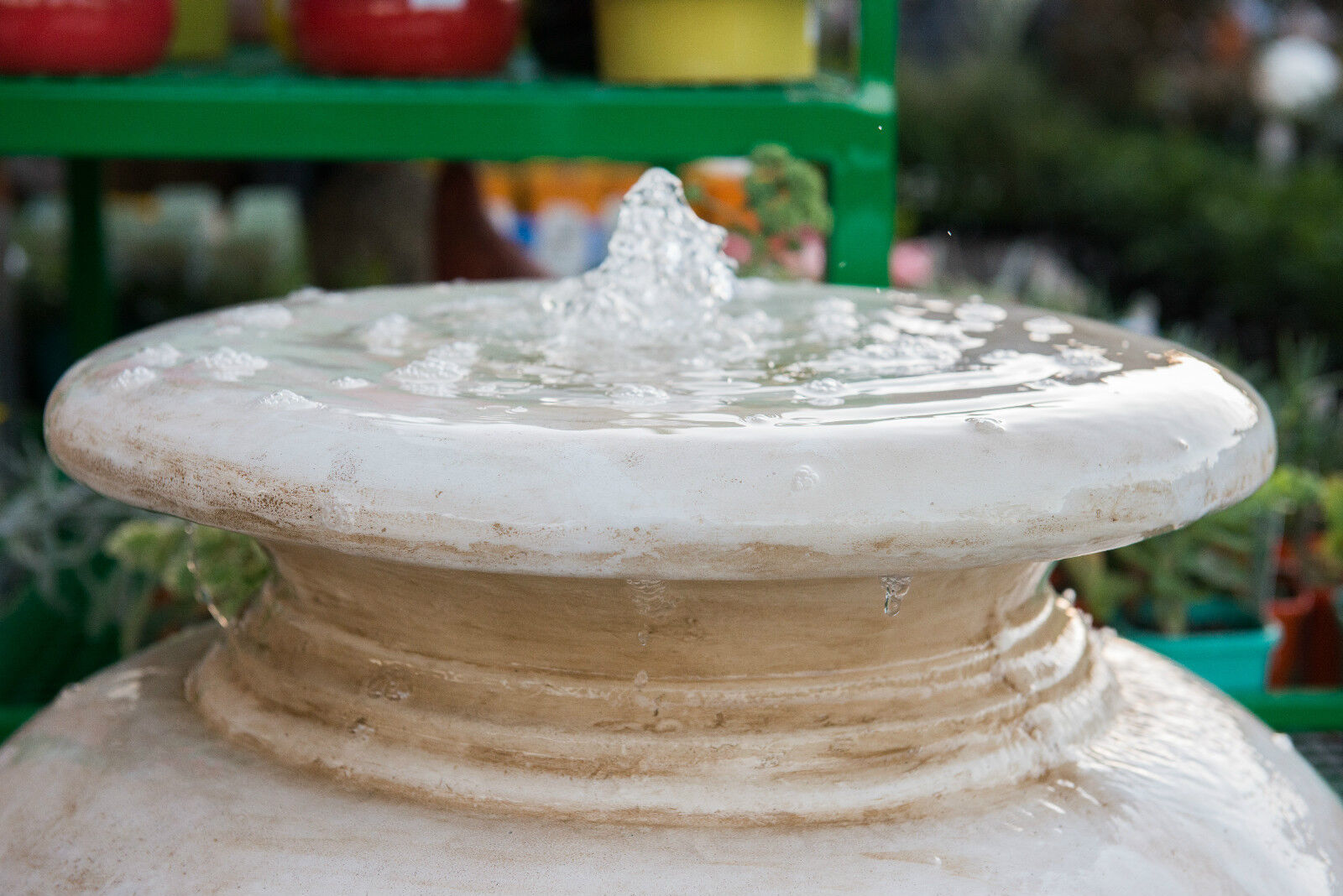
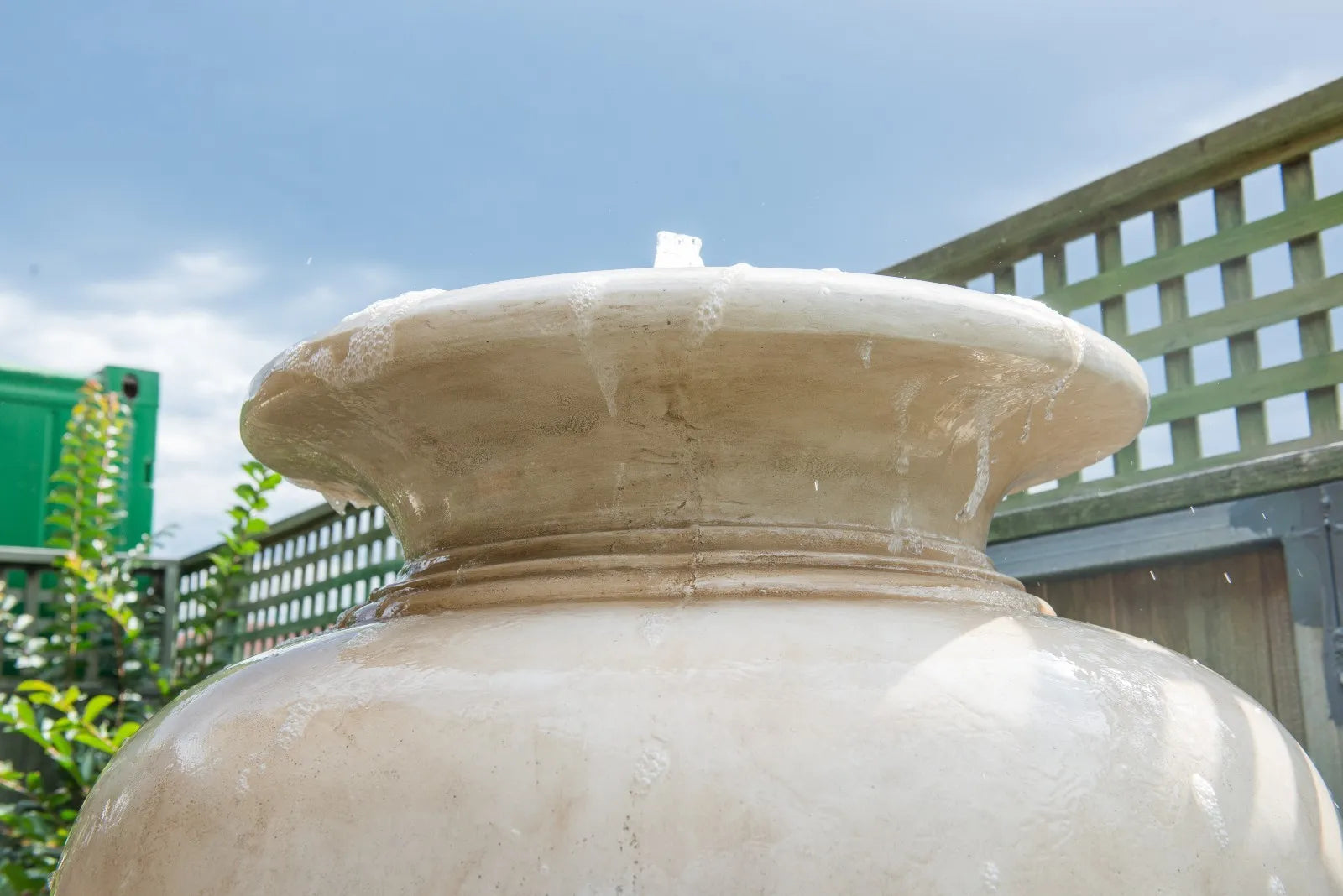
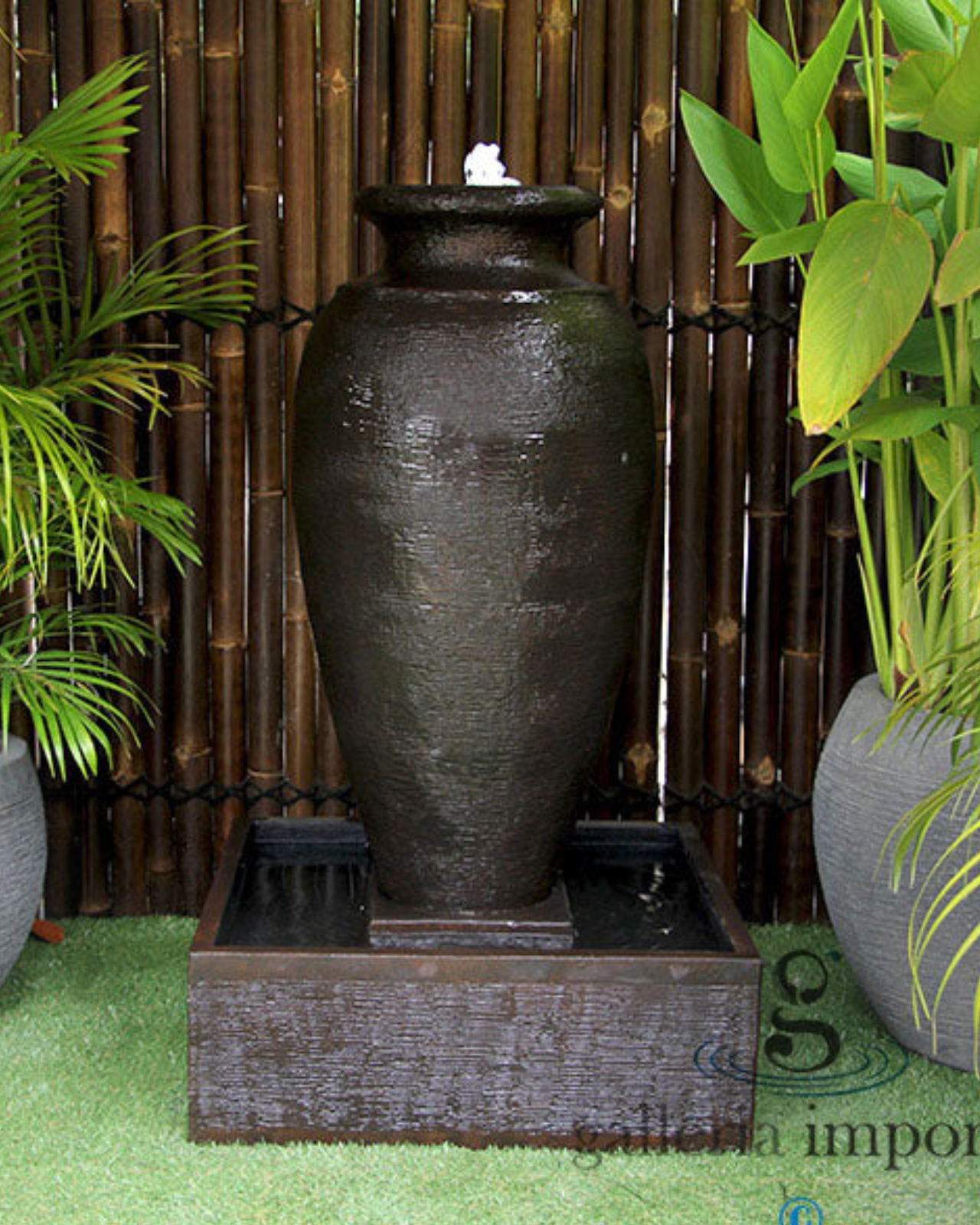

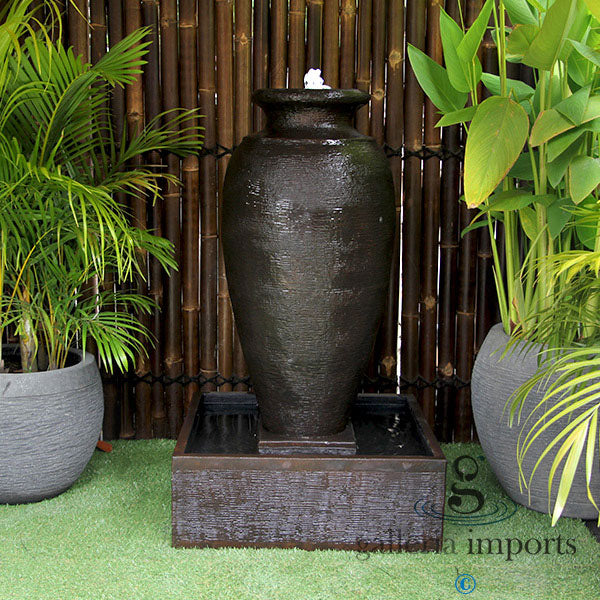
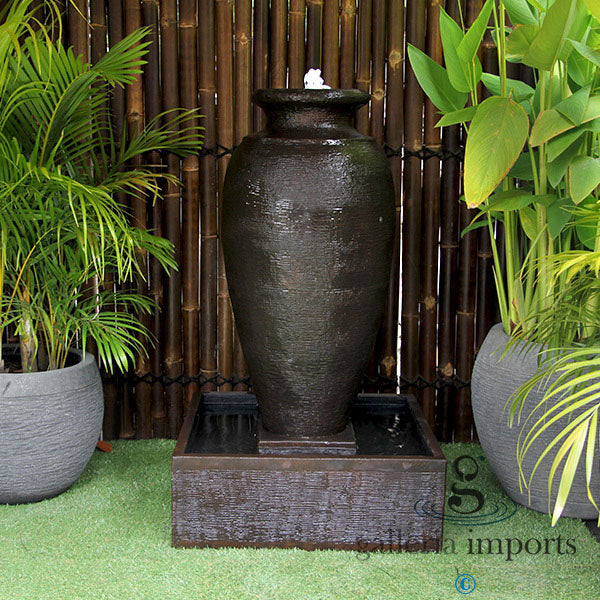
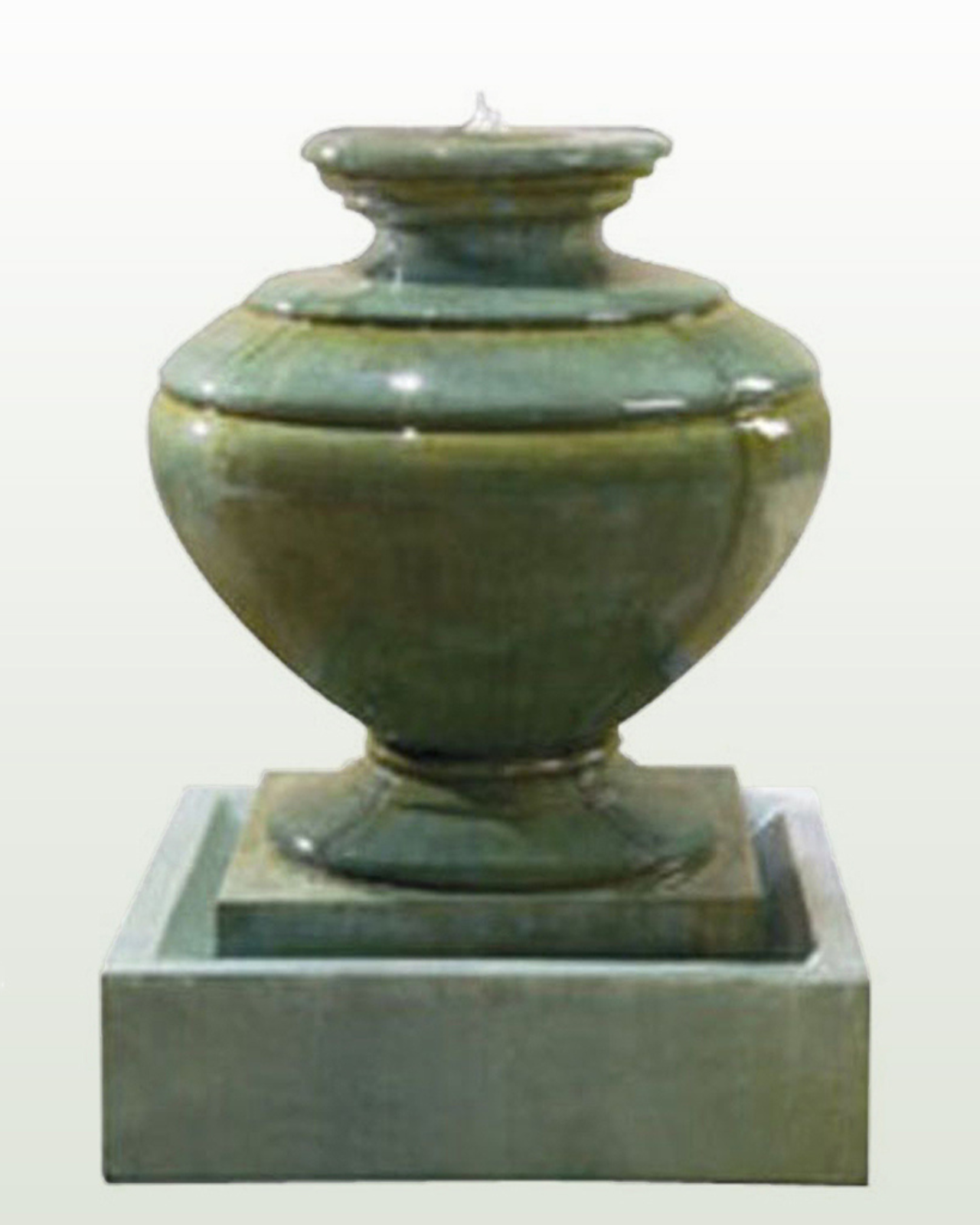
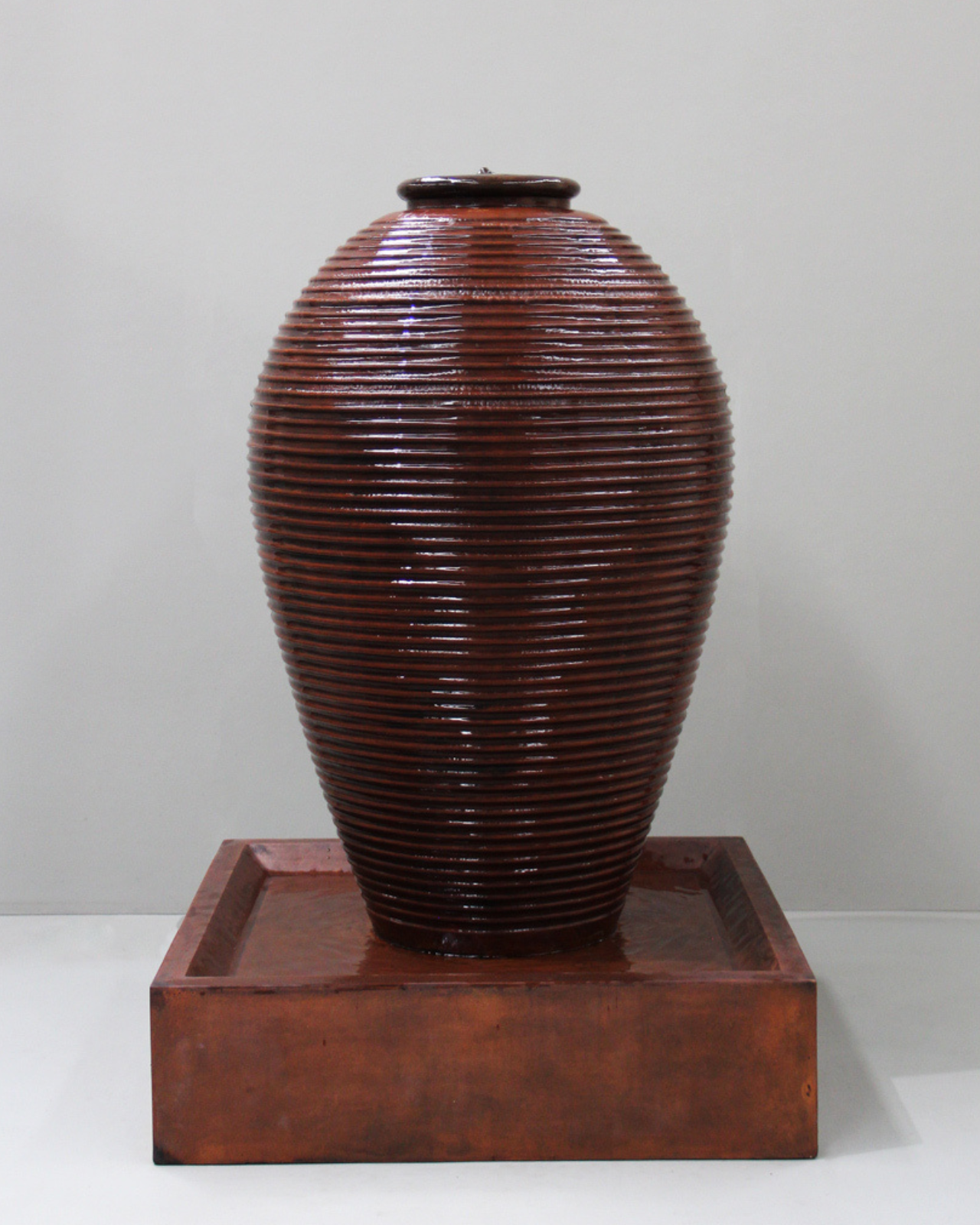
Share:
Comprehensive Guide to Solar Powered Water fountains
Why Stainless Steel? The Durability and Longevity of Steel Water Fountains